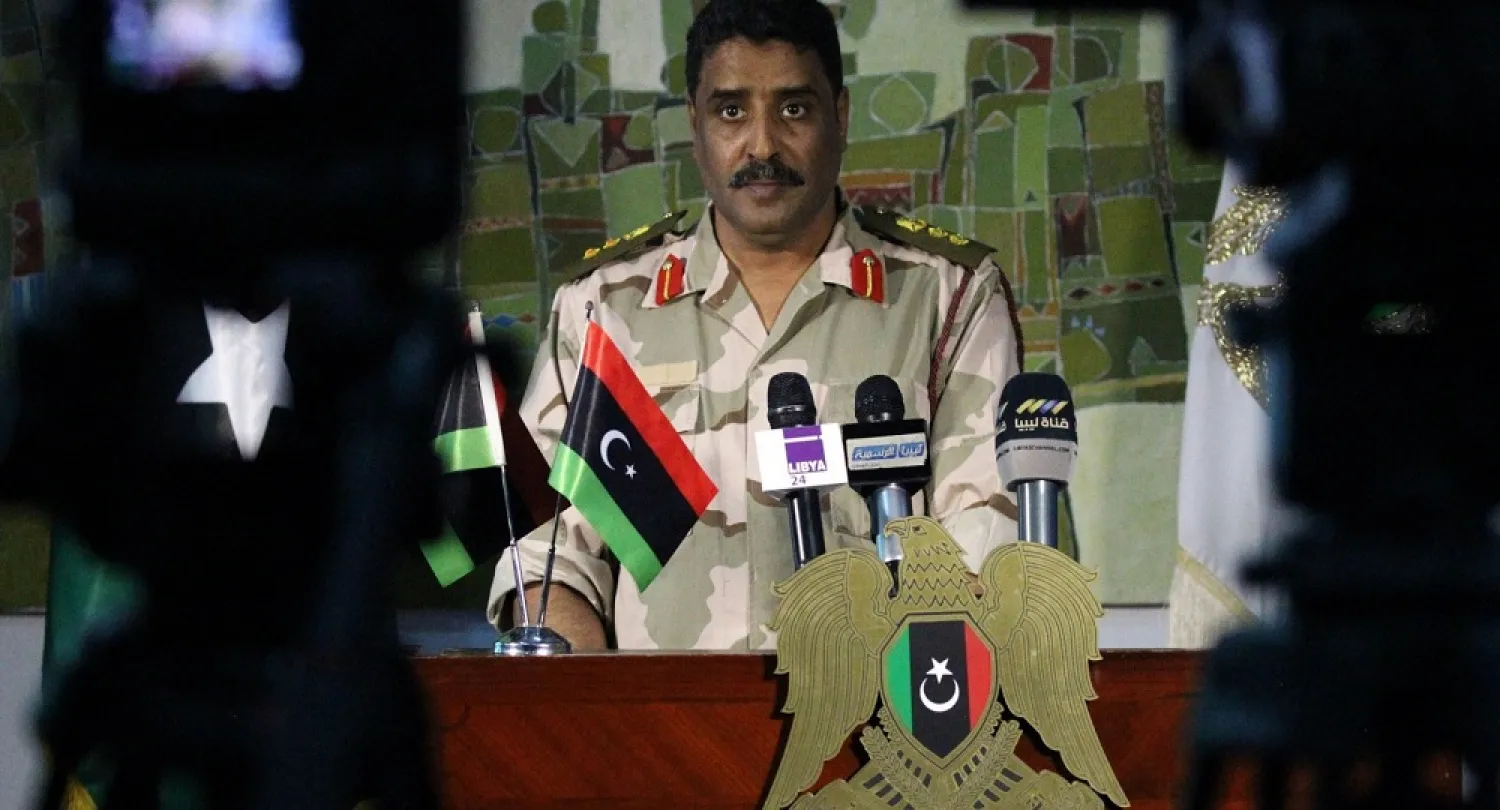Libyan National Army (LNA) spokesman Ahmed al-Mismari vowed that the military will be “victorious” against the “Turkish invaders.”
His remarks were the first statements by the LNA since the surprise visit carried out on Wednesday by a high-ranking Turkish delegation to the capital, Tripoli, where it held talks with officials from the Government of National Accord (GNA).
Mismari said the delegation traveled to Tripoli to “reap the spoils”, vowing that the LNA will resist the “takfiri militias and Turkish invaders.”
He declared that the region stretching from Wadi Jarf in the west to al-Wishka east of Misrata a military operations zone.
“The Turks will not succeed in seizing Libya’s resources, which will only belong to the free Libyans,” he stressed.
Mismari also released footage of what he described as grave violations committed by GNA militias and Syrian mercenaries in Libya, such as the use of ambulances to monitor LNA movements and providing Turkish militias with LNA coordinates in order to target them with drone attacks.
Meanwhile, head of the High Council of State Khalid al-Mishri, one of the most prominent Muslim Brotherhood officials, used the Turkish delegation’s visit to declare that LNA commander, Khalifa Haftar, will play no role in any way whatsoever in Libya’s future.
Moreover, he said ongoing negotiations between Turkey and Russia on Libya are based on “principles” recognized by the council and GNA, underlining the government’s insistence on recapturing Sirte city and the entire Libyan state.
Haftar held talks on Thursday with deputy parliament Speaker Ahmed Houma and Foreign Minister of the east-based government Abdulhadi Elhweg, who briefed him on his recent visit to Russia.
Elhweg had met with Russian deputy Foreign Minister Mikhail Bogdanov and special envoy to the Russian president. He stated after the meeting that there can be no permanent solution in Libya without the disbanding and disarmament of militias.









